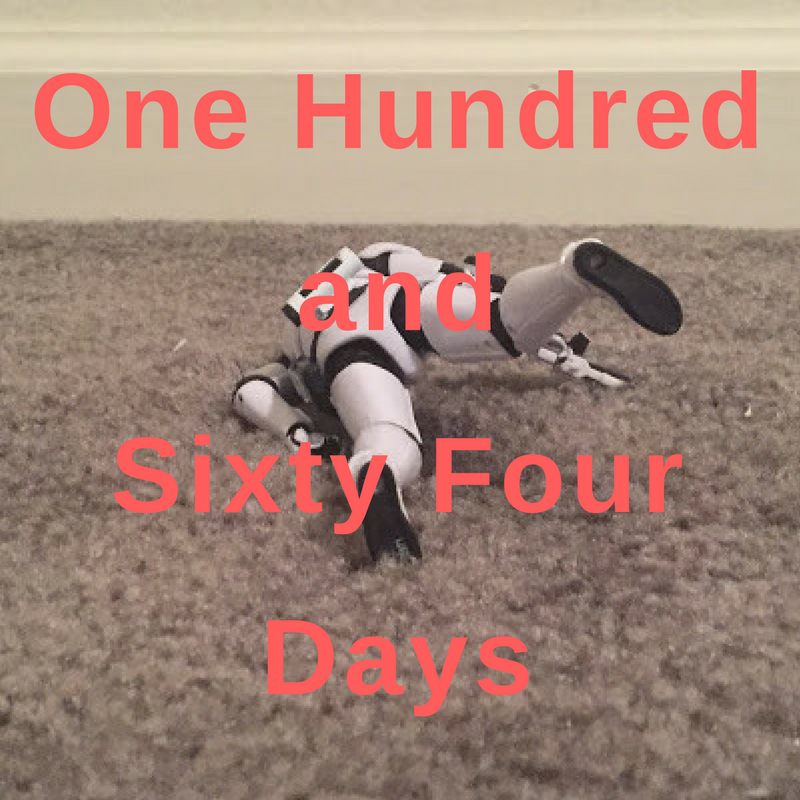And given time we'll find it strange to be alone.
Factory Showroom
Factory Showroom was They Might Be Giants' last album on Elektra before being released from their contract. It brings the second great phase of their career to a close: at this point you can split the band's career neatly in two, with their first seven years spent as a thoroughly DIY independent duo, and the second seven years signed to a subsidiary of one of the largest media conglomerates on the planet. It wasn't an unprofitable partnership: although the marketing for their later albums left something to be desired, the success of Flood gave them access to a far larger fanbase than they could ever have reached at the time through conventional independent labels. Historically, They Might Be Giants are a band that has appealed predominantly to, well, nerds - and since nerds have a tendency, once they become fans of something, to never, ever stop being fans of that thing - leaving Elektra and Warner Brothers wasn't the deathblow that it might have been (and actually was) for many more popular bands. They left Elektra with their fanbase intact.
But what of the album itself? Coming on the heels of the five albums and change that preceded it, it's hard not to regard Factory Showroom as something of a relative disappointment. Especially after John Henry, the album sounds reserved, downright conservative in places. It showcases a band that has finally managed to cement its image of itself in its own mind. This is not to imply that They Might Be Giants had ever been anything other than themselves. From the very first synthesizer chords of "Everything Right is Wrong Again" on their self-titled debut, TMBG never sounded like anyone but themselves. But what that meant changed a great deal in the years between their debut and John Henry. Every new album had represented a significant change from the previous album. It's not hard to see the basic DNA that songs like "She's an Angel" and "End of the Tour" share, despite the eight tumultuous years separating the two recordings. But its also hard not to see that the years between their first and their sixth album had seen the band change and evolve from extremely enthusiastic but nonetheless sloppy amateurs to highly professional working musicians with serious technical chops. They had always had a knack for writing hooks and building deceptively complex power-pop melodies, but suddenly over the course of a long decade of hard work they had become very good at their jobs as musicians.
This was not an unmixed blessing. The word that comes to mind when listening to Factor Showroom, more than any other, is "professional." This is a band that has figured out how to do basically anything it wants in the studio. The genre pastiches on which the band had cut their teeth stopped being quite so weird and became, well, credible. "S-E-X-X-Y" opens the album with a dead-on white-funk burlesque, complete with horn section and Love Unlimited string vamps. It's a remarkably well designed replica of a specific sound. It's also one my least favorite TMBG songs, and my dislike it such that I usually just skip it when I listen to the album now.
There are a few moments like that on the album. The problem with Factory Showroom, as well as a large percentage of their post-Elektra albums, is that the moment their ability to match the technical demands of their demanding compositions becomes most fully realized is also the moment when it becomes harder to justify making albums that sound weird for the hell of it. One of the reasons why their first handful of albums sound so distinctive is that, at least in the beginning, they were making it all up as they went. Listen to Flood, which sounds amazingly polished next to either of their first two LPs, and it still sounds bizarre even after twenty-three years: they're still just two guys in a room making music with a handful of instruments, drum machines, and primitive samplers. Sure, they can actually afford to have a few sessions musicians, but the sound of that album is still the sound of a band making delightfully weird music because their ambition can't quite keep pace with their limitations, in terms of both skill and resources. John Henry was their first full-band recording, but it's also a diverse and uncharacteristically dark album, very proficient but also undeniably haunted. There is nothing on Factory Showroom to match the strangeness of Flood or the appealing desperation of John Henry: this is a comfortable album made by competent musicians who were satisfied by the fact that, for perhaps the first time in their history, their reach no longer exceeded their grasp.
A while back John Flansburgh stated that Factory Showroom was his favorite of their albums. That makes complete sense. Factory Showroom was produced by Pat Dillett, famous for his work with artists as diverse as Brian Eno and Mariah Carey. The album is, consequentially, a really slick piece of work. If it sounds like I'm damning with faint praise, it's because I am. It's hard to speak objectively about Factory Showroom because, after being a fan for the better part of the decade, this is the album that got me to drop They Might Be Giants.
Which is not to say that I threw out all my CDs in a fit of pique, or refused to ever listen to new music again, or anything as dramatic as that. But coming on the heels of John Henry - still probably in the top three or four albums I've listened to the most in my entire life - Factory Showroom offered a picture of a band in whom I wasn't really that interested anymore. It's not as if they were unrecognizable - quite the contrary, the album represents the completely logical end point to which they had been traveling for the entire career. But even if this was what They Might Be Giants had always wanted - or, at least, always aspired (not quite the same thing) - to sound like, it seemed peaked and lifeless compared to every album that had preceded it. Perhaps - and I am not entertaining any illusions on this point - perhaps this is simply my own personal subjective reaction, of little value other than as a barometer of my personal feelings regarding a band I spent a large chunk of my formative years inhaling like oxygen.
There came a point where I stopped reading Robert Heinlein, and I know specifically why: when I read through a huge chunk of Heinlein's bibliography as a kid, I was disproportionately pulled to the huge novels he wrote in the last fifteen or so years of his life - regardless of the fact that they weren't very good. I really liked Time Enough For Love - I still have the coverless, beat-up paperback on a shelf next to my desk. I liked Friday a little less, I Will Fear No Evil even less than that, and by the time I got to The Cat Who Walks Through Walls and The Number of the Beast my enthusiasm had dimmed to dry obligation. I didn't actually read To Sail Beyond the Sunset until many years later when I was completing a book report on Heinlein, and boy, it really was just all the things that I grew to hate about his later novels wrapped up into one big, mediocre bow. I really liked - on paper, at least - the kind of syncretic, cosmic multiverse building he was doing in those later novels. But the execution was nowhere near as fun as books about people who build a dimension-hopping ship so they can travel to Oz and meet John Carter should have been. And because I stuck with Heinlein for longer than was healthy, I maintained a healthy distance from his work for years afterwards, and it wasn't until much later that I could pull my copy of The Past Through Tomorrow off the shelf and acknowledge once again that the guy had always been a good writer. The situation was that when he got older and was given a free reign to write whatever he wanted, he turned out to have a dearth of interesting things to say.
The situation with Factory Showroom was similar in many respects. It's not necessarily that They Might Be Giants didn't know how to edit themselves - quite the opposite. They had made a very solid album of indie-leaning pop rock that engaged the listener's interest from beginning to end. Going down the album's tracklist is almost like assembling a checklist of past and future They Might Be Giants songwriting themes (an ungenerous soul might even say "cliches"): you've got the radio-friendly rocker to head up the album after a false-start intro ("Till My Head Falls Off"), a story about misunderstood nerdy kids ("How Can I Sing Like A Girl"), a song about an anthropomorphized inanimate object ("Metal Detector"), a tongue-in-cheek song about another band ("XTC vs Adam Ant"), a fun ditty about a misunderstood historical figure ("James K. Polk"), and not one but two songs explicitly about mind control ("Spiraling Shape" and "The Bells Are Ringing"). Let's not forget two pure, unlistenable gimmicks - the "0 track" "Token Back to Brooklyn" (good luck getting that to play on your laptop's CD player), and "I Can Hear You," recorded directly to wax cylinder at the Edison Museum in New Jersey. It's not necessarily a bad thing to say that these songs follow established patterns, because any band or artist who has been around for long enough amasses a certain set of themes and repeating motifs, and the desire to avoid repetition has led more than one band down unprofitable blind alleys. The problem with They Might Be Giants is that they have been very prolific, and (it must be said), their fans have been extremely anal about cataloging their discography. It's not hard to detect the patterns, and once you can see the patterns, its really hard to unsee them and begin to accept them as formulae. Check out the page for "Mind Control, Hypnotism" at This Might Be A Wiki for an exhaustive list of all the songs in their catalogue that deal with these themes. There's nothing new under the sun, and nowhere is this more apparent than when you're scanning the track list of a new They Might Be Giants album in order to identify the new songs about mind control.
But again: even if I think - and still believe, even if the last few albums have been strong enough to pull me back into the fold - that Factory Showroom marked a good point to stop listening to They Might Be Giants, that should not be taken to mean that the album is without merit. On the contrary, one of the more frustrating things about the album is that even as the group is beginning to ossify into what would soon be revealed as its "mature" form, they are still capable of writing some damn fine songs. "Spiraling Shape" and "The Bells Are Ringing" may both be about essentially the same thing, but they are still among the Johns' best compositions. Either song would have fit perfectly into the running time of Flood or Apollo 18. I would even go so far as to say that both songs represent a good distillation of precisely why the group is so good to begin with: enduring melodies, clever lyrics, an undefinable sense of catchiness that defies the ability of the listener to fully dismiss the songs once heard. You will find yourself humming the tune to "Spiraling Shape" in the middle of the night many years from now, unable to remember the last time you heard the track but still able to recite the tongue-twisting bridge and chorus by heart. That's what they do, and they do it well.
The problem is not that the songs are bad, but that in many instances they seem slight. "James K. Polk" has become one of their signature songs, but it makes me grimace because it represents a turn towards the kind of empty clever-joke-as-cultural-signifier that would fast become a trademark of their work. The plight of being terminally awkward and knowing more about culture and history than about girls and dating is obviously the stereotypical dilemma under which the band and their fans labor, but Factory Showroom marked a turning point for me in terms of the band's willingness to play down to their fans' expectations of precisely what a They Might Be Giants album should sound like. It worked wonders for them: after the mixed response John Henry received, they probably felt they needed to shore up their support from precisely that constituency. This reaped large dividends down the road, after they left Elektra and had to once again rely on the support of their fans without any mediation.
My favorite song on the album, and a strong contender for my favorite They Might Be Giants song ever, is "Pet Name." On first blush this might seem to be an unlikely candidate for anyone's "favorite" TMBG track - it's quite uncharacteristically restrained, for one thing, downright sedate and quiet in a way that flirts with actual maturity. It's precisely the type of song that represents They Might Be Giants playing against type, and even though they've a few of them in their repertoire ("The End of the Tour" being the most famous example, but "You Don't Like Me" off Join Us is another fine example), they usually bring the house down. Flansburgh is, let's face it, not a particularly flexible vocalist, but he definitely sells the song - a melancholy ballad about a relationship sung in the past tense.
You just forgot your one pet name for me, /There's something about "Pet Name," for me, that serves not merely as an excellent climax for the album, but a type of culmination of the band's career to that point. You can draw a direct line from their earliest recordings through to the relative maturity and unquestioned virtuosity of Factory Showroom. The problem with the album is that this competency comes at a stiff price: where once the group had been defined by a creative restlessness that verged on fickle, they eschewed that kind of unpredictability for a solid and respectable mid-career inertia. I like "Pet Name" because it represents, for me, a "path not taken" in terms of the directions the group could have taken after Factory Showroom. I'm not going to make the claim that if They Might Be Giants had continued down that road they wouldn't have eventually landed somewhere uncomfortably close to "Adult Contemporary," or that they would have followed up Factory Showroom with something equally as ambitious or enduring as The Soft Bulletin. The late 90s is when the inevitable career comparisons between TMBG and the Flaming Lips short-circuit completely. After a few years spent in the wilderness the Lips made a massive shift towards producing something with a broad appeal that successfully jumpstarted their career by opening inroads to a large swath of fans who had either never heard or dismissed the band out of hand based on their reputation as a gimmicky one-hit-wonder. They Might Be Giants, on the other hand, spent the years following their exodus from Elektra turning ever inward, consolidating their fanbase by producing a string of releases dedicated to appeal to no one outside their (admittedly large and very vocal) fanbase.
And all those promises you said you'd keep. /
And it's a lucky thing, /
Because that sentimental stuff /
Doesn't suit you at all.
Is it any surprise that it would be over a decade before They Might Be Giants released anything near as strong as their first five albums? They had a very successful decade following Factory Showroom and although I obviously do not begrudge them one iota of their hard-fought popularity, at the same time I cannot deny that I didn't like much of what they released between that album and The Else in 2007. It would be another four years after that before they released the preternaturally strong Join Us, an album specifically designed to sound as much as possible like their early 90s records.
(out of five)




